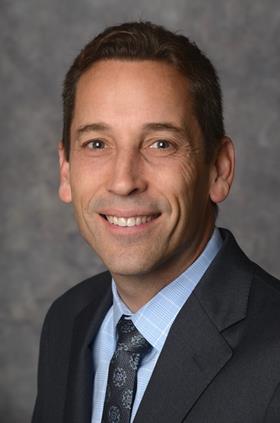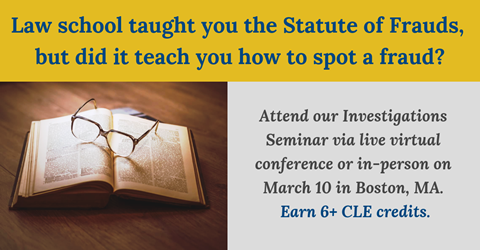Compliance Week has partnered with Clear Law Institute to offer its seminar, “The Science of Workplace Investigations,” on Tuesday, March 10, at Suffolk University in Boston. Attendees may participate live or by video conference.
The session will be led by former U.S. Department of Justice attorney and Clear Law Institute CEO Michael Johnson, who has provided investigations training for dozens of Fortune 500 companies and organizations such as the Equal Employment Opportunity Commission (EEOC), the United Nations, and the World Bank. His investigations training has been featured in articles in the Wall Street Journal and The New Yorker.
Attend our Investigations class
Reserve your spot today for our “Science of Workplace Investigations” workshop, held live Tuesday, March 10, from 9 a.m.-4 p.m. ET. You may attend online or in-person at Suffolk University in Boston. The online class gets the same six credit hours of continuing education credit (CLE, CCEP, SHRM, HRCI).
Below is our Q&A with Johnson with a taste of what attendees might learn at his training session:
Q. Is there research on how to best conduct investigations?
MJ: Yes. There are a few dozen scientists around the world that research how to most effectively question witnesses and assess credibility. Our seminar teaches what researchers have learned are the best techniques and how to apply these techniques to workplace investigations.
Q. Are investigators pretty good at spotting when a witness is lying?
MJ: Most people think that they are good at spotting deception, but research shows that we’re terrible at it. In research studies, on average people can correctly determine who is telling the truth and who is lying only 54 percent of the time. In these studies, even professionals, such as judges and law enforcement officers, only correctly determine who is lying and who is telling the truth around 55 percent of the time. Given that we’d expect people to get 50 percent correct if they just guessed, that’s not very good.
Q. What’s the biggest mistake that investigators make in assessing witness credibility?
MJ: They focus on looking instead of listening. Researchers have found that when trying to spot deception, people tend to focus on looking for non-verbal signs of deception. Unfortunately, most of the stereotypical “body language” cues of deception are not actually valid predictors of lying.
For example, liars are not more likely than truth tellers to avoid eye contact or become fidgety. Truthful witnesses may exhibit these behaviors simply because they are nervous about being interviewed. At the same time, liars will make a concerted effort to look you in the eye and not be fidgety.
Q. Do people do a better job of spotting lies in person?
MJ: Research has shown that on average people do better at spotting deception when they can’t see the witness. When they can’t see the witness, they are less likely to be influenced by unconscious biases and by their inaccurate beliefs about non-verbal cues to deception. They also have to focus on listening closely to the nuances of what people say, which is the best way to spot deception.

Q. What are the biggest mistakes that investigators make when questioning witnesses?
MJ: They come to the interview with a carefully scripted set of questions. Instead of using scripted questions, the investigator should start by asking the witness to explain everything about the alleged incident, giving as much detail as possible. Ideally, the witness will be truthful. But if the witness is going to lie, I want him to lie as much as possible. That is, I want him to commit to a story with as many details as possible. I can then look for evidence or other witnesses to confirm or contradict those details.
Q. Do you teach a particular interview technique?
MJ: Yes, I teach the cognitive interview, which is the most widely researched interviewing technique in the world. The cognitive interview relies on first asking the witness for a free narrative of their story and having the witness, not the investigator, do most of the talking.
In some cases, you can then use more advanced questioning techniques. For example, research shows that asking the person to tell you the story in reverse order, asking the person to draw the event as they verbally describe it, and asking questions related to time or space help to better differentiate between who is telling the truth and who is lying. Of course, these questions won’t be applicable in some investigations, but they can be very effective in others.
Q. What will attendees learn in your investigation seminar on March 10?
MJ: By watching videos of interviews and examining numerous case studies, attendees learn:
- How to utilize the “Cognitive Interview”;
- How to apply research-based methods for detecting signs of deception and truthfulness;
- The legal requirements for workplace investigations;
- A six-step process for writing clear and concise investigative reports.














No comments yet